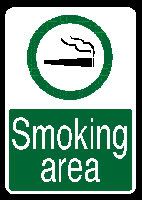Arizona voters may get a chance this year to do what they thought they were doing in 1996: allow people who are ill to possess and use marijuana legally.
An initiative being crafted would spell out that individuals who are certified by their doctors as needing the drug would be able to possess small amounts — the details are still being worked out — without running afoul of state law. They also would be able to grow their own drugs.
Backers, organized as the Arizona Medical Marijuana Policy Project, have until July 3 to get the 153,365 signatures necessary to put the measure on the November ballot.
Financing for the initiative is coming from the national Marijuana Policy Project which bills itself as the largest marijuana policy reform organization in the country. It already has kicked in $10,000.
That organization is no stranger to state initiatives: It also was behind a 2006 Nevada ballot measure to decriminalize marijuana and instead regulate and tax it. But that initiative picked up just 44 percent of the vote.
Two years earlier, though, it financed a successful medical initiative in Montana.
Dan Bernath, a spokesman for the national group, said it appears voters are more willing to allow people who are ill to use marijuana than to make its possession legal for everyone.
That has proven to be the case in Arizona, where by a 2-1 margin voters in 1996 approved a law allowing doctors to prescribe marijuana — and various other illegal drugs — to patients who are seriously or terminally ill.
That law was ratified again two years later by voters after state legislators attempted to partially repeal it.
But a 2002 initiative, which included a provision to reduce the penalty for possession of up to 2 ounces to a fine, picked up just 43 percent of the vote.
The new initiative comes because the U.S. Drug Enforcement Agency effectively quashed the 1996 law by threatening to revoke all prescription-writing privileges of any physician who prescribed otherwise illegal drugs to their Arizona patients. The result is no Arizona doctor has written such a prescription.
Alternate language for this measure, still being worked out, would allow doctors to “recommend” marijuana.
That distinction is crucial: The U.S. Supreme Court, in a historic 2003 ruling, blocked the DEA from going after California doctors who, using that state’s law, recommend a patient use marijuana.
That still leaves the question of how patients are supposed to get the drugs in the first place.
Courts have allowed agents to pursue suppliers. And some of the “dispensaries” in California have been raided.
Bernath said that is why states which have adopted medical marijuana laws since California allow patients or a “designated caregiver” to grow a set amount of the drug.
“This keeps it small enough that the federal government doesn’t turn its attention to those kind of things,” he said.
That defeated 2002 initiative attempted to deal with the supply problem by allowing anyone with a doctor’s recommendation to get up to 2 ounces of marijuana, free, each month from the state Department of Public Safety, which presumably would have obtained its supply from drugs seized from those who lack the necessary state permission.
That initiative was opposed by Janet Napolitano, then the state attorney general and, at the time, a candidate for governor, despite her admission of having indulged.
“I experimented in college a little bit and regret doing it,” she said at the time. “When you’re in college you do a lot of dumb stuff.
1/11/08
Initiative Would Make Marijuana Legal For Sick
Subscribe to:
Post Comments (Atom)





















No comments:
Post a Comment